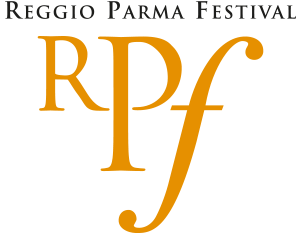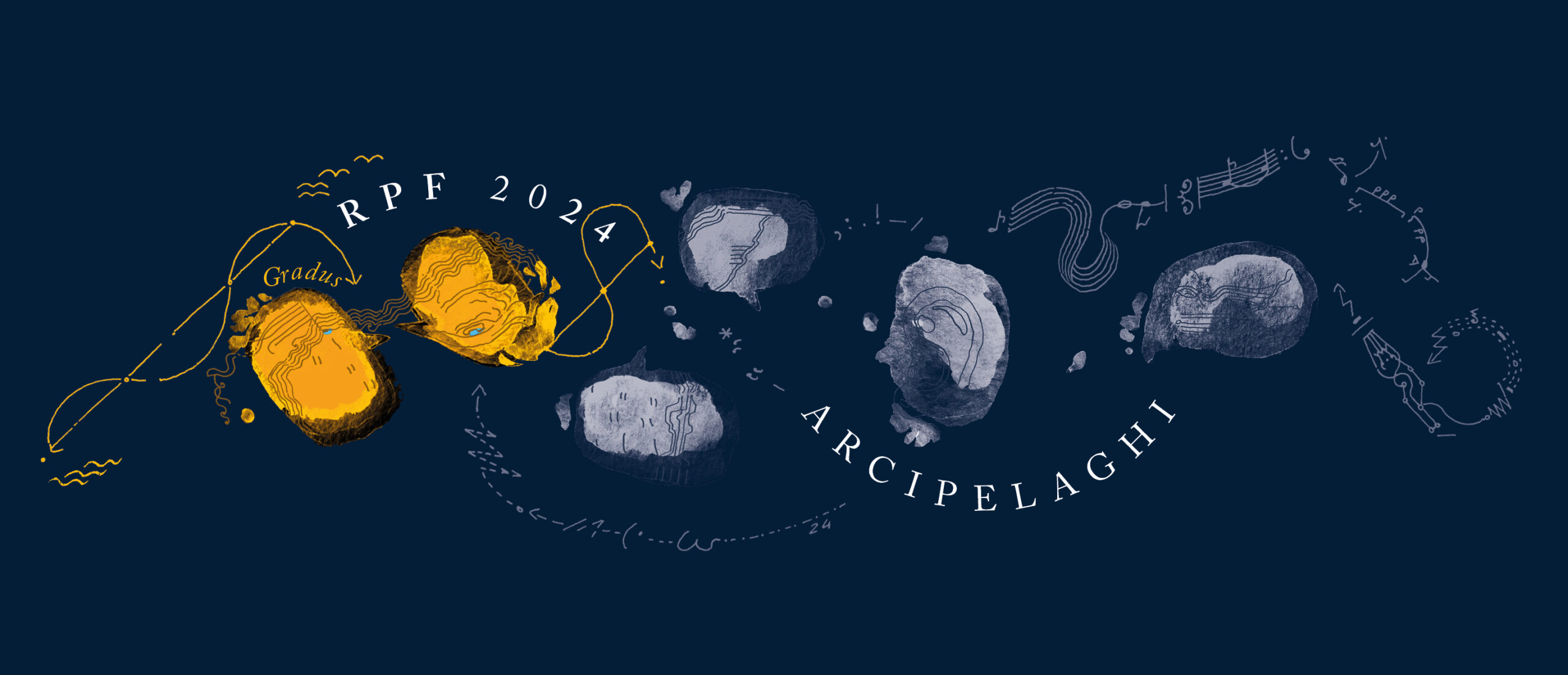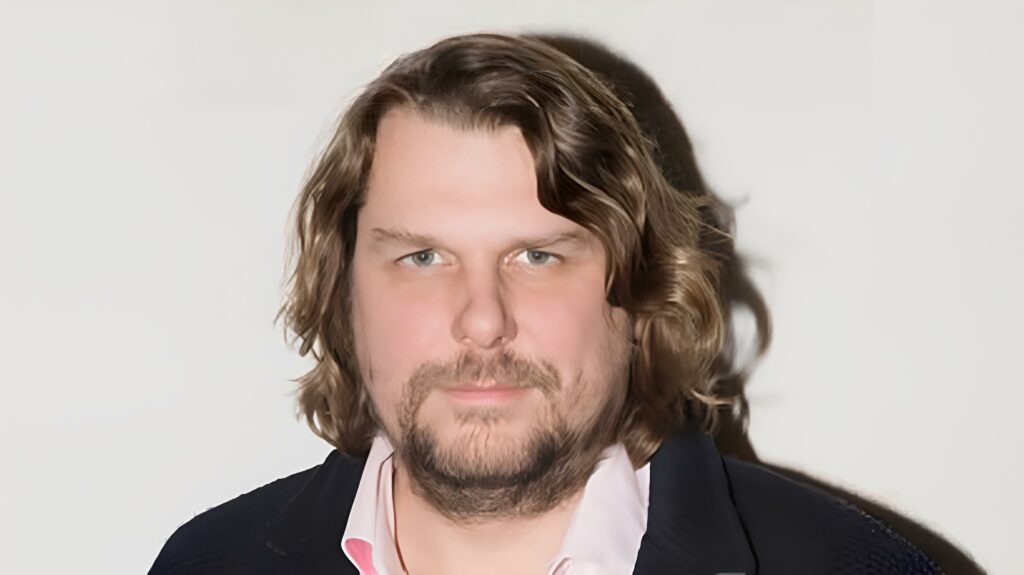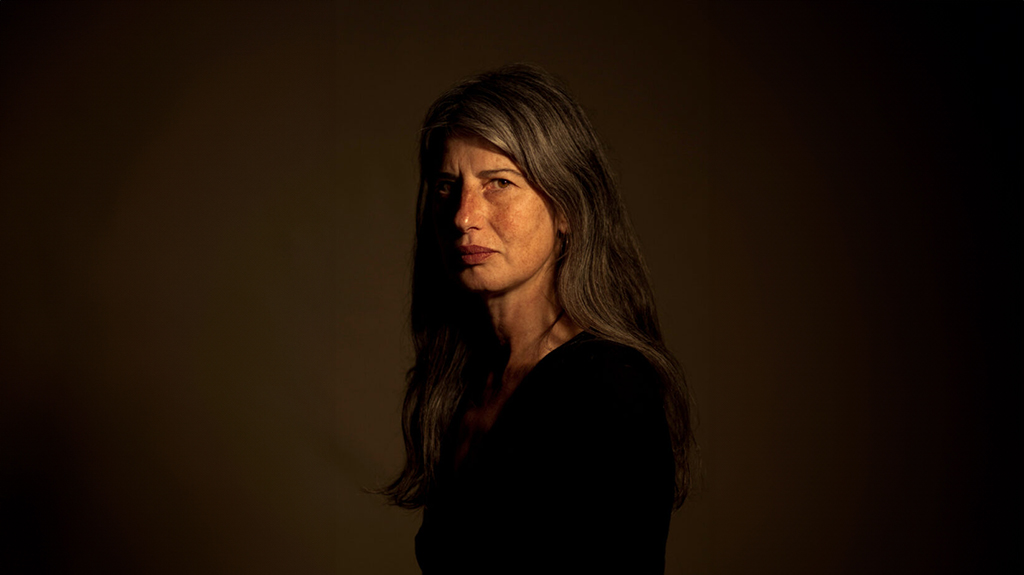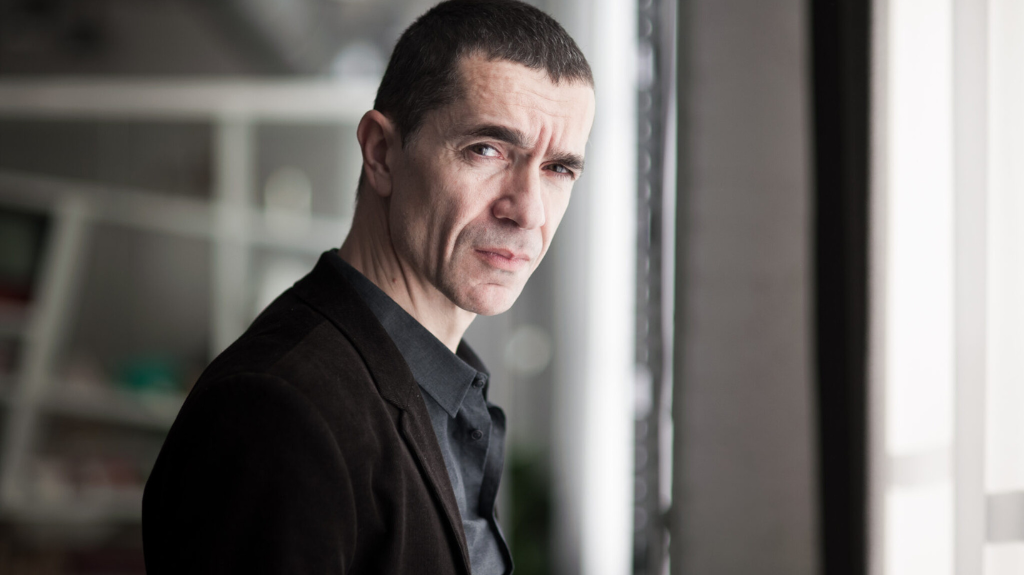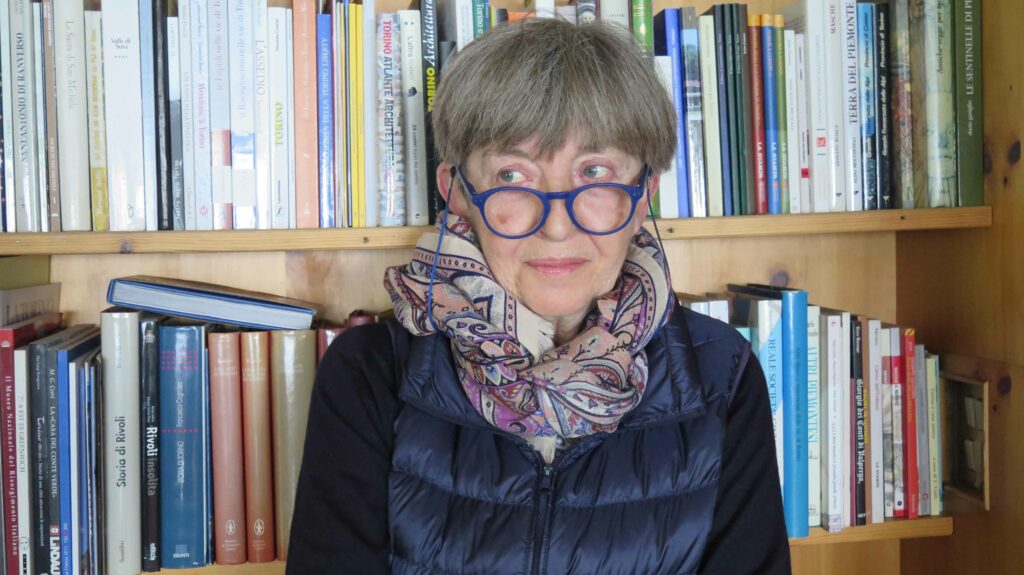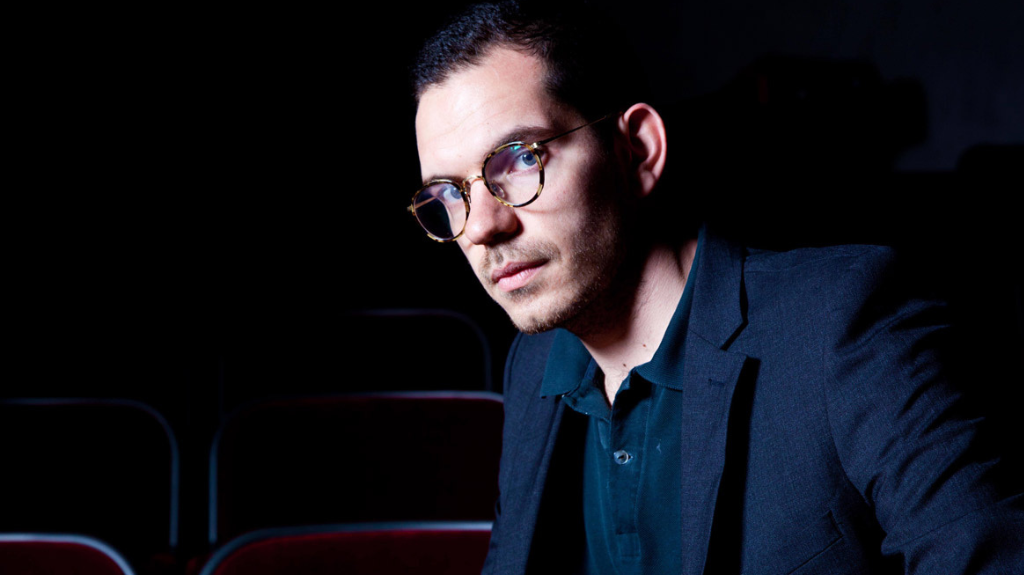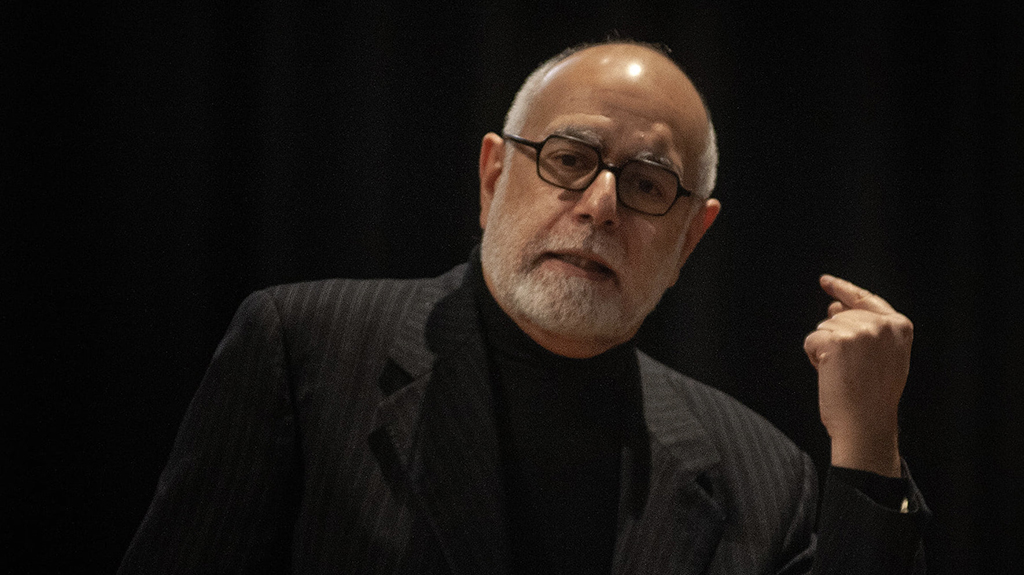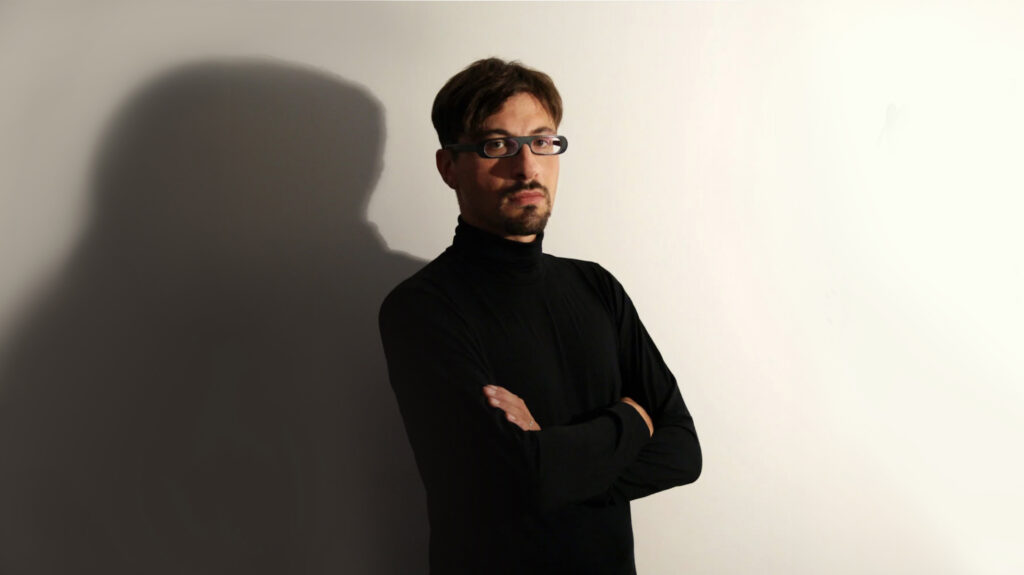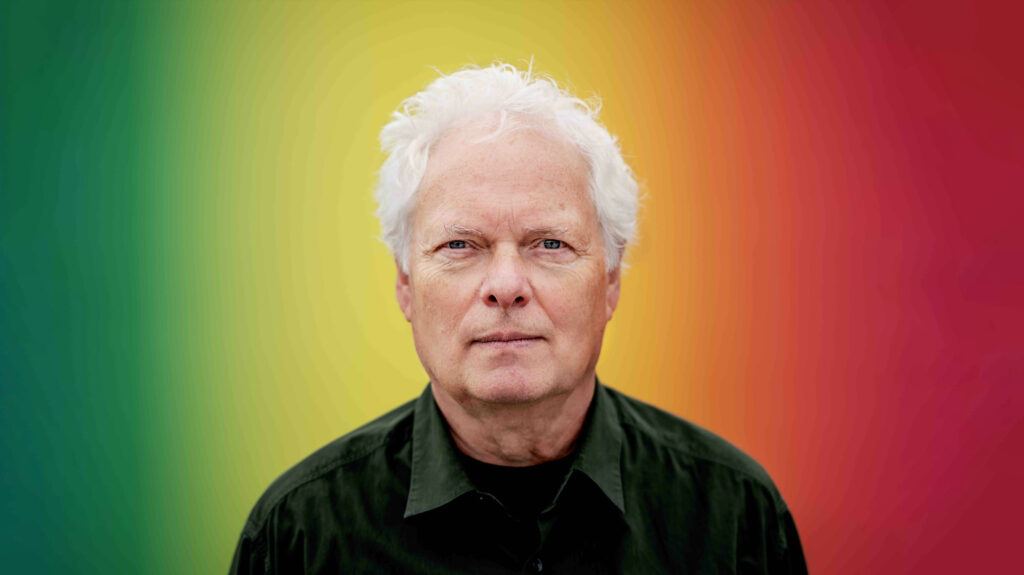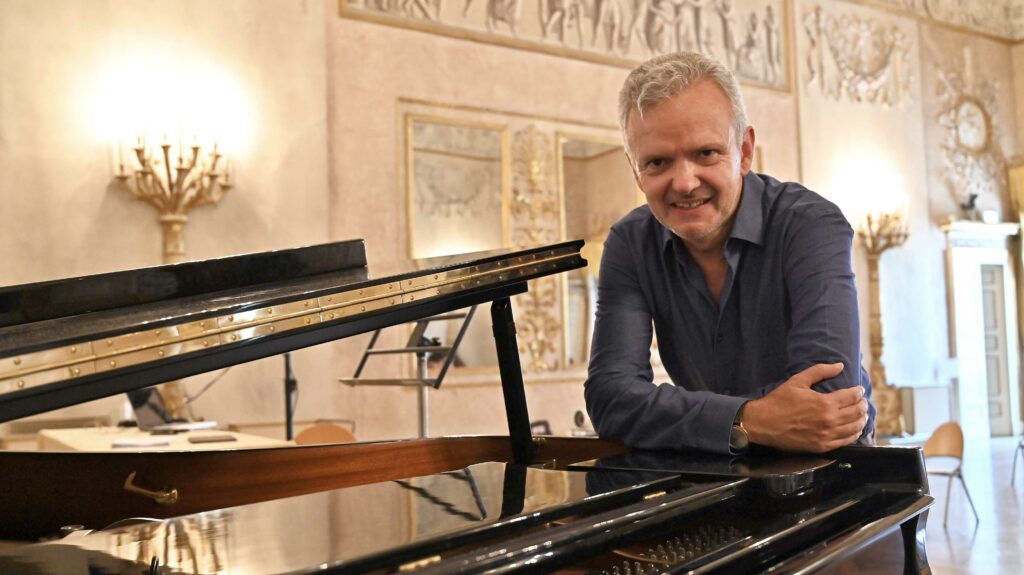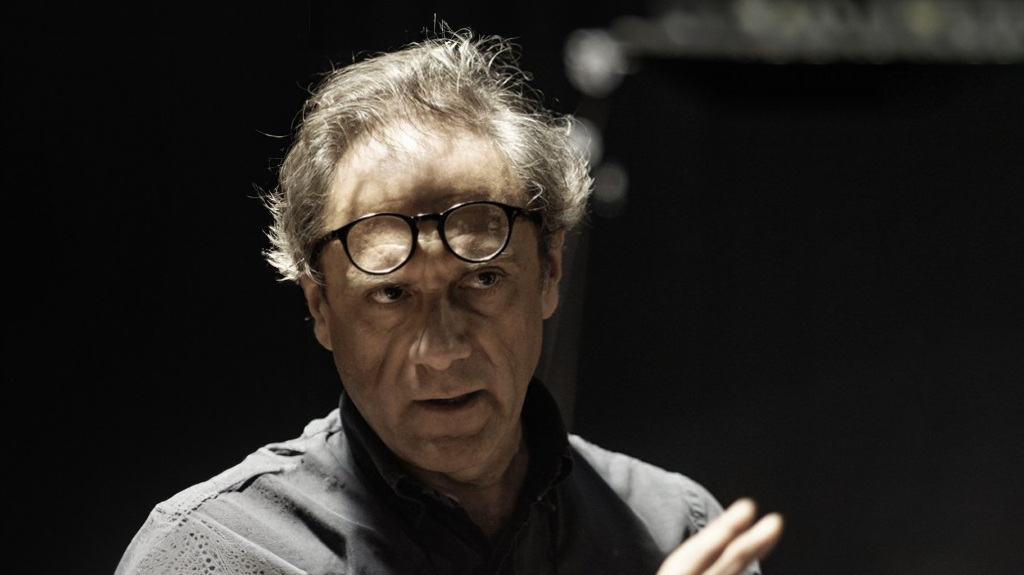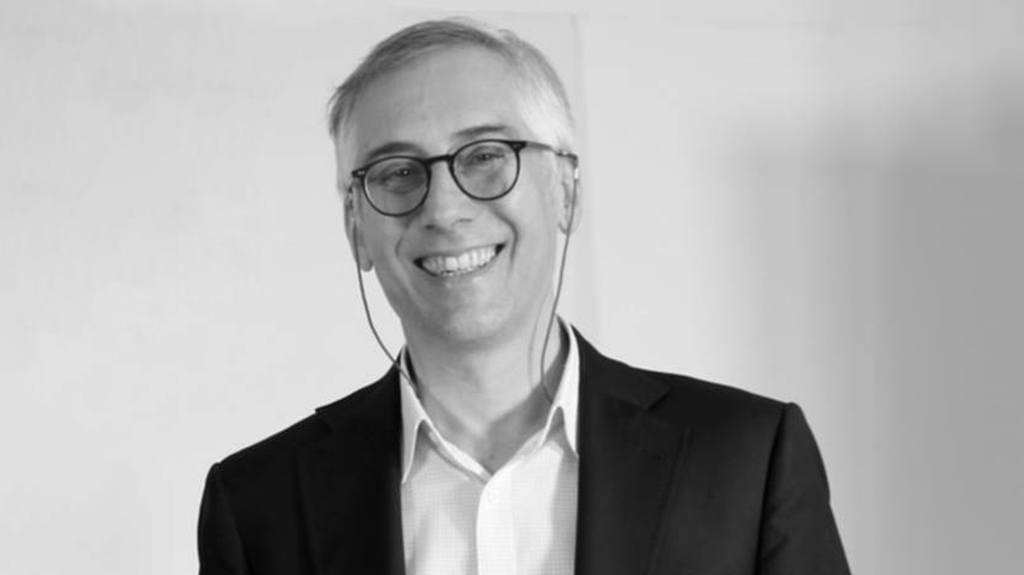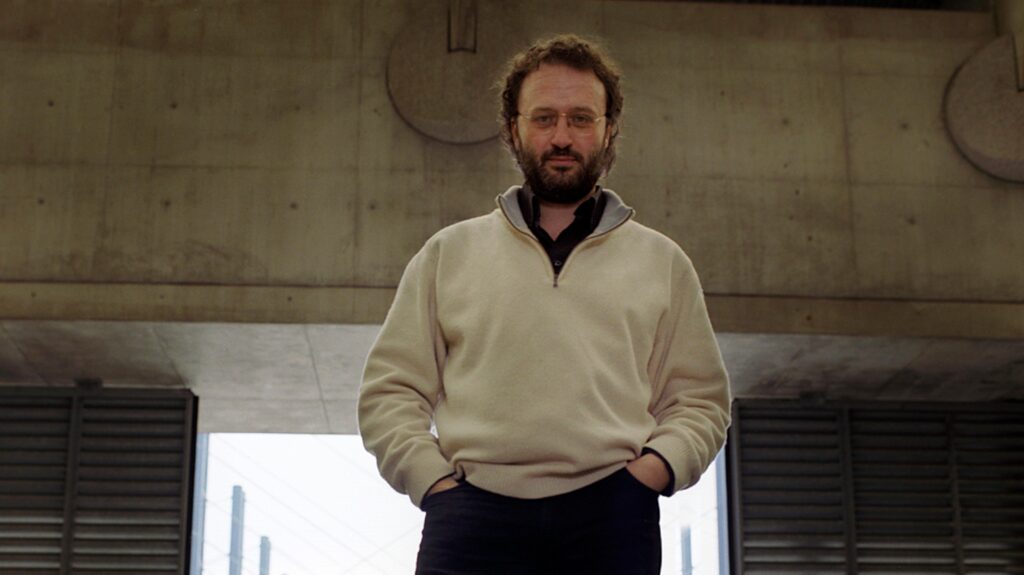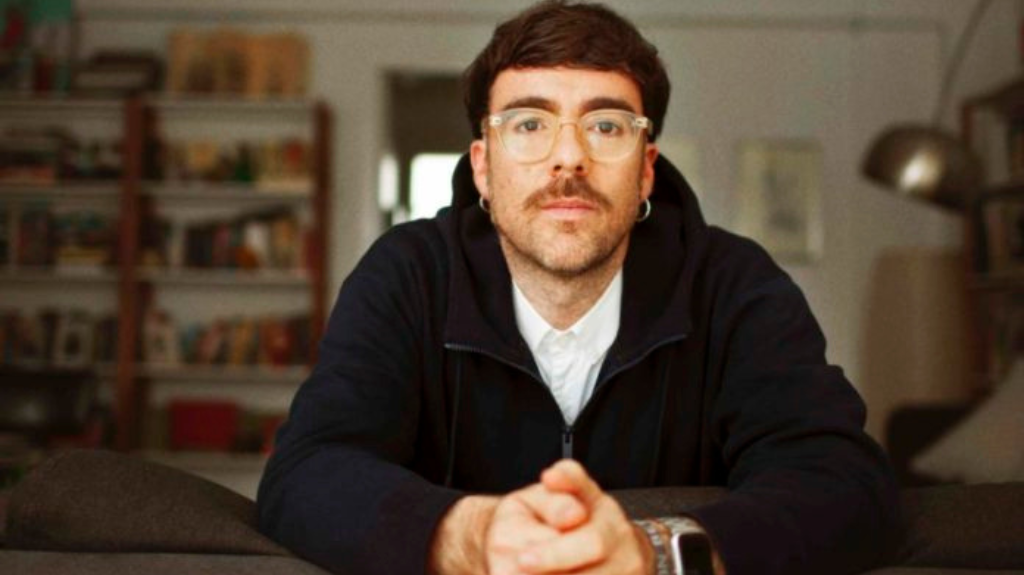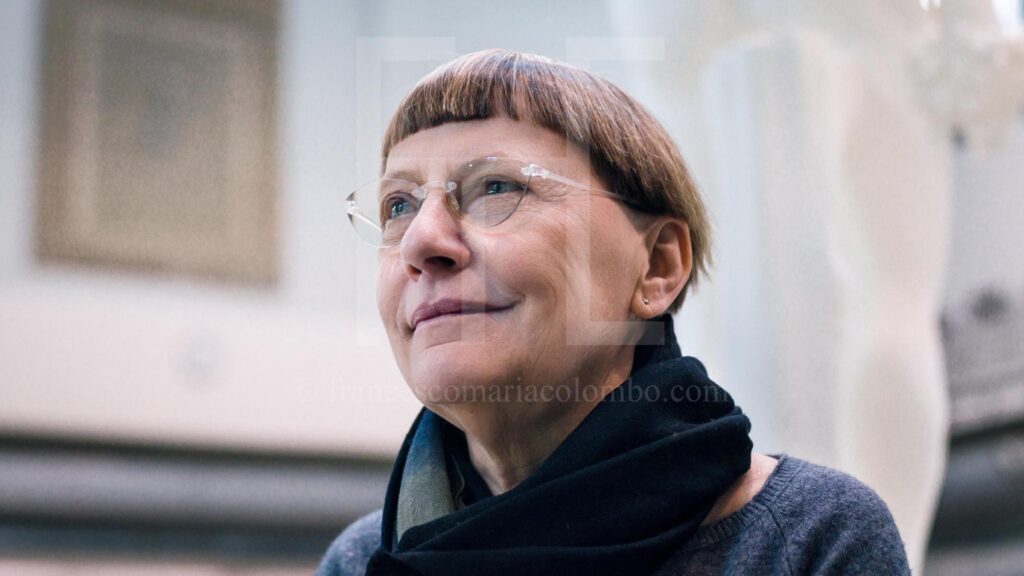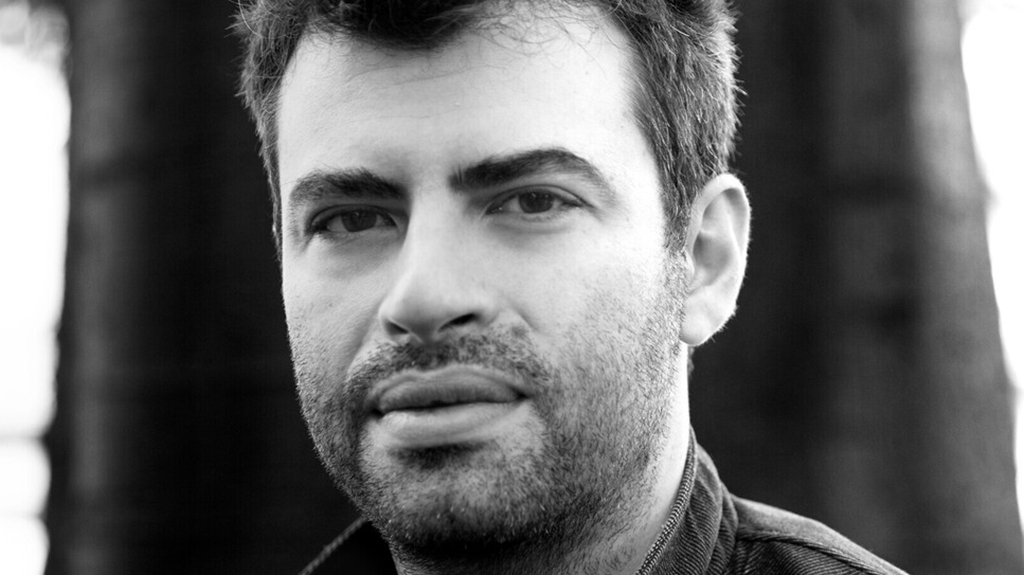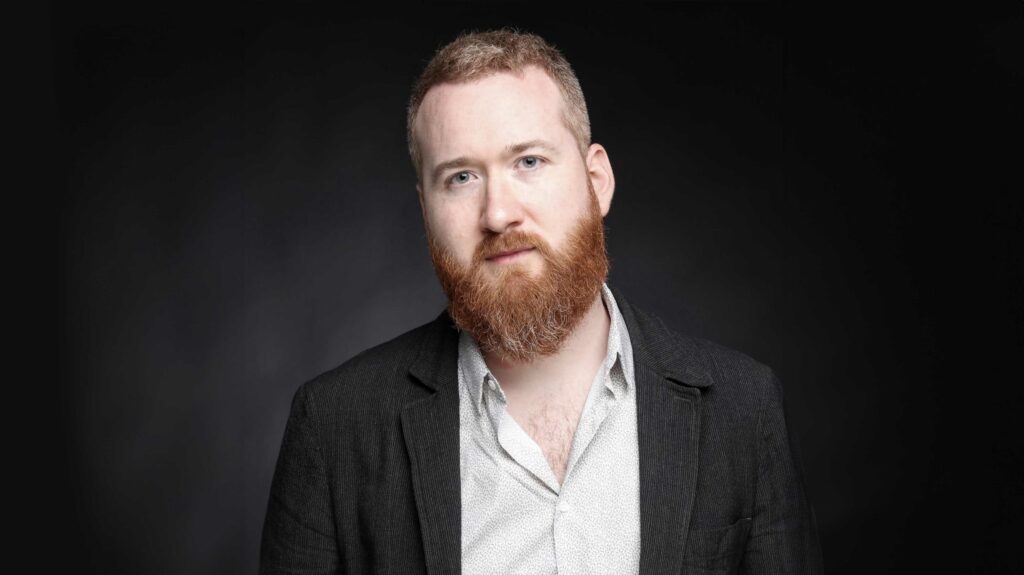Gradus
Passages towards the new
The Reggio Parma Festival, its two member cities, Parma and Reggio Emilia, and its three member Theater Institutions, Fondazione Teatro Due, Fondazione Teatro Regio di Parma and Fondazione I Teatri di Reggio Emilia, have created “Gradus. Passages for the New,” a project aimed at fostering and stimulating an intergenerational passage/exchange of knowledge that will boost the creative awareness of the new generation of live performance.
To hold the lectures and lead the meetings, important names from the world of culture and live performance, whose purpose is to offer suggestions and points of view, highlight critical issues and possible developments, initiate reflections and comparisons, that is, to become “masters” and “teachers” with the responsibility and awareness that this role entails in contemporary society.
The ultimate goal is the production and staging of new plays, selected during the course, which will enter the 2025 playbills of Festival Aperto, Festival Verdi and Teatro Festival.
After a call to action, 14 projects (6 foreign, 8 Italian), 32 artists (13 women and 19 men) and a total of 27 course participants were selected. The first week of classes was held in June, at Teatro Due, Parma.
In September, meetings will resume at Teatro Valli.
See the photo gallery of the first phase of Gradus at Teatro Due, Parma.
Translated with DeepL.com (free version)
See the photo gallery of the first phase of Gradus at Teatro Due in Parma.
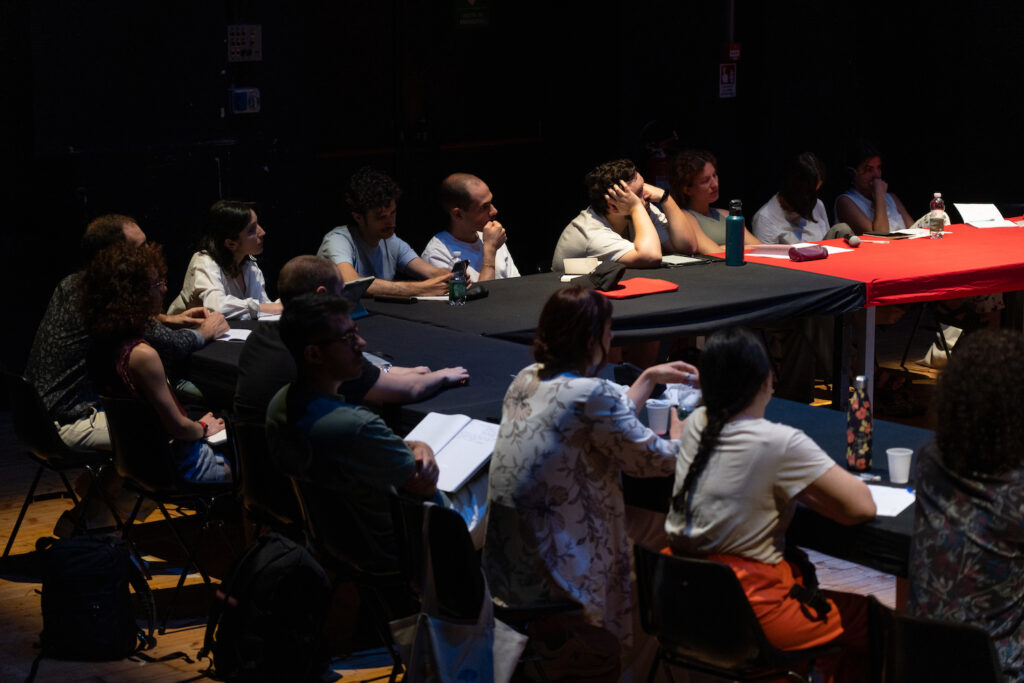
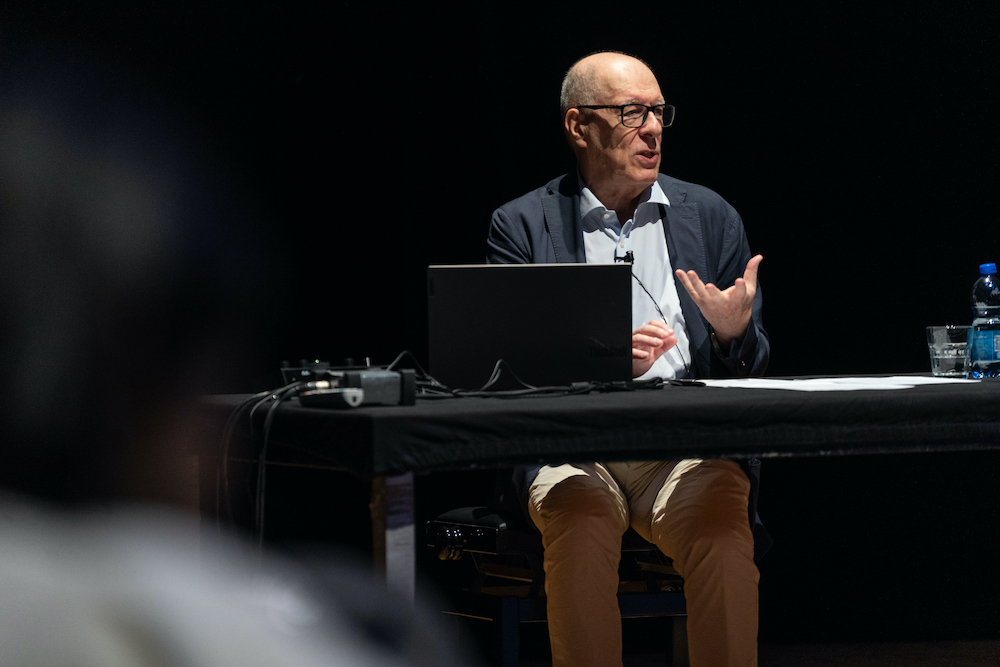
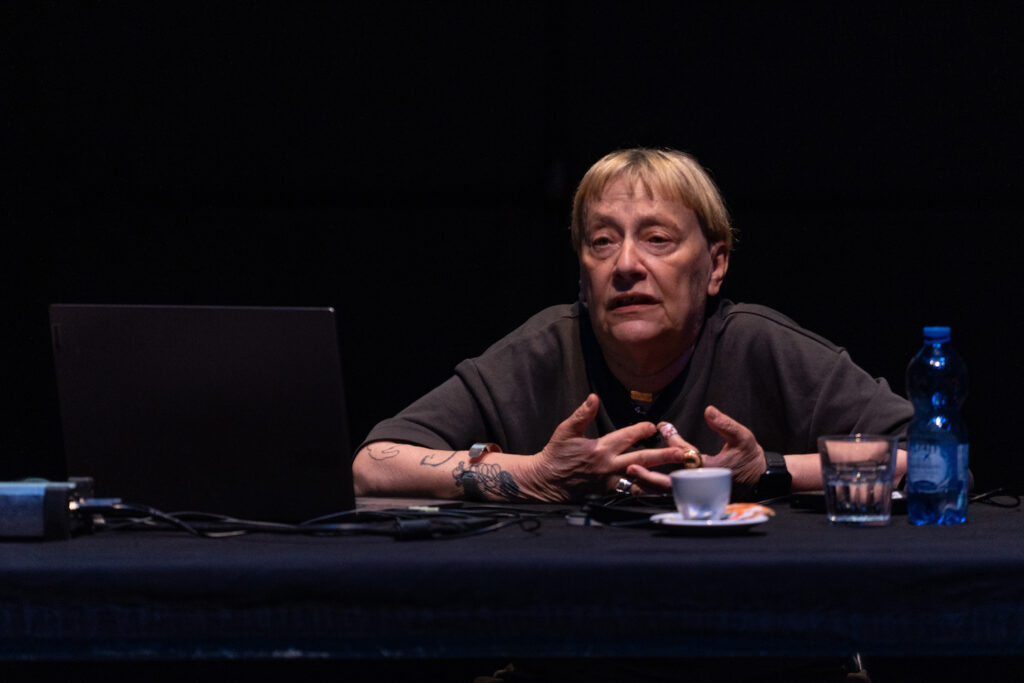
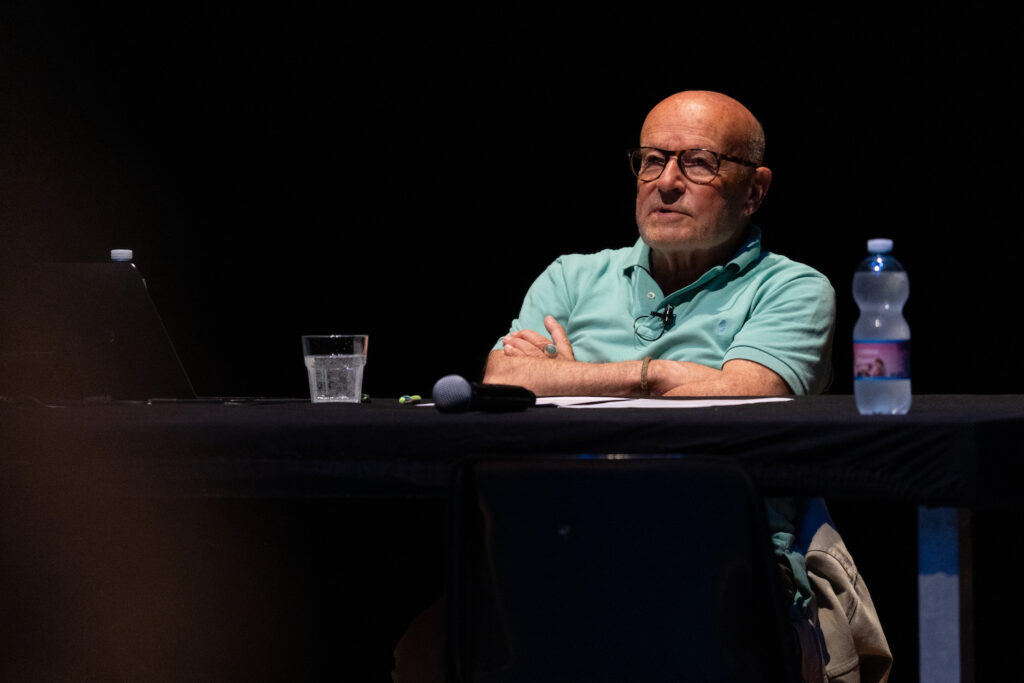
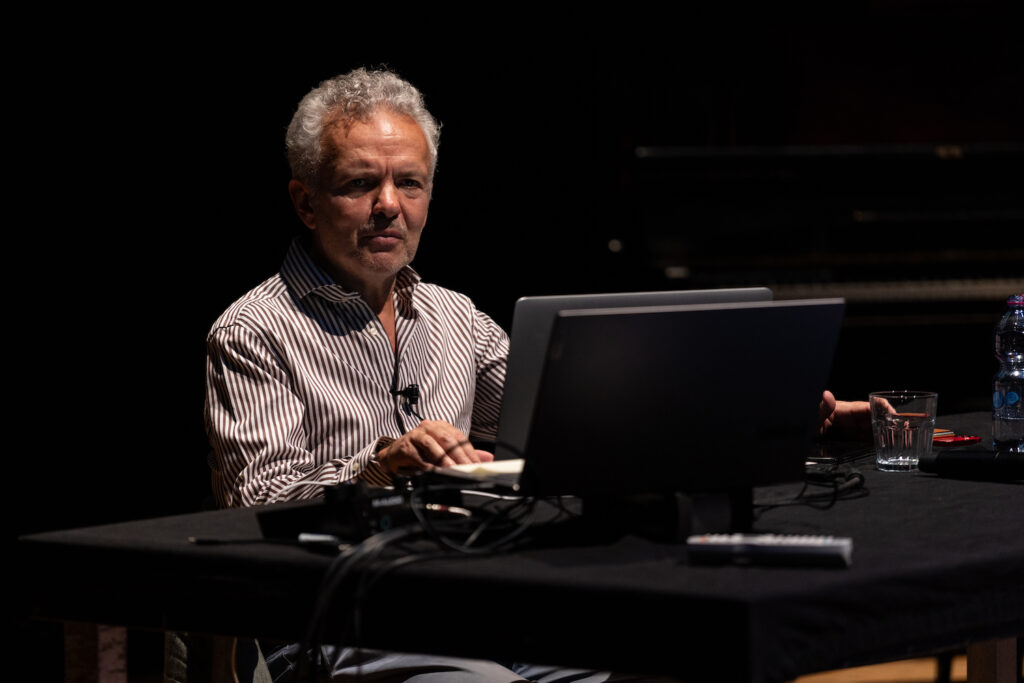
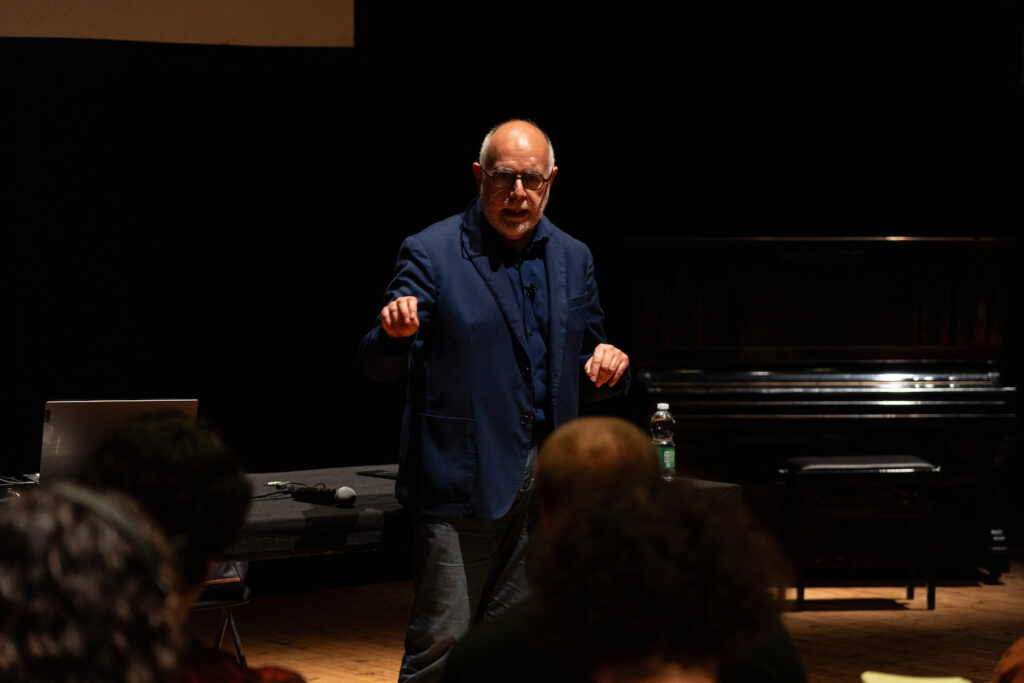
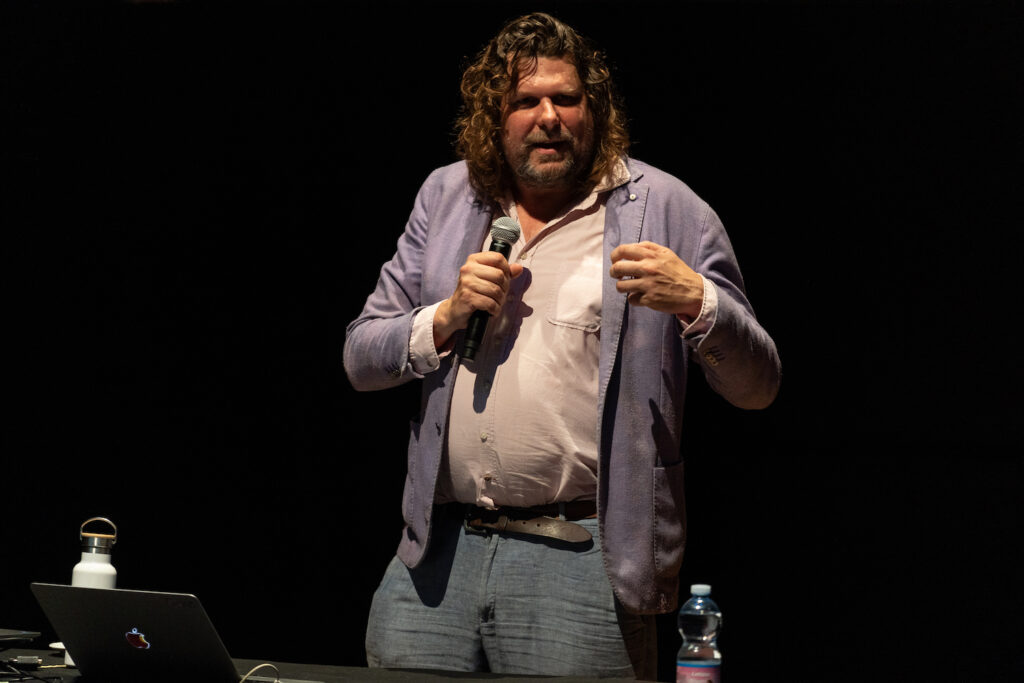
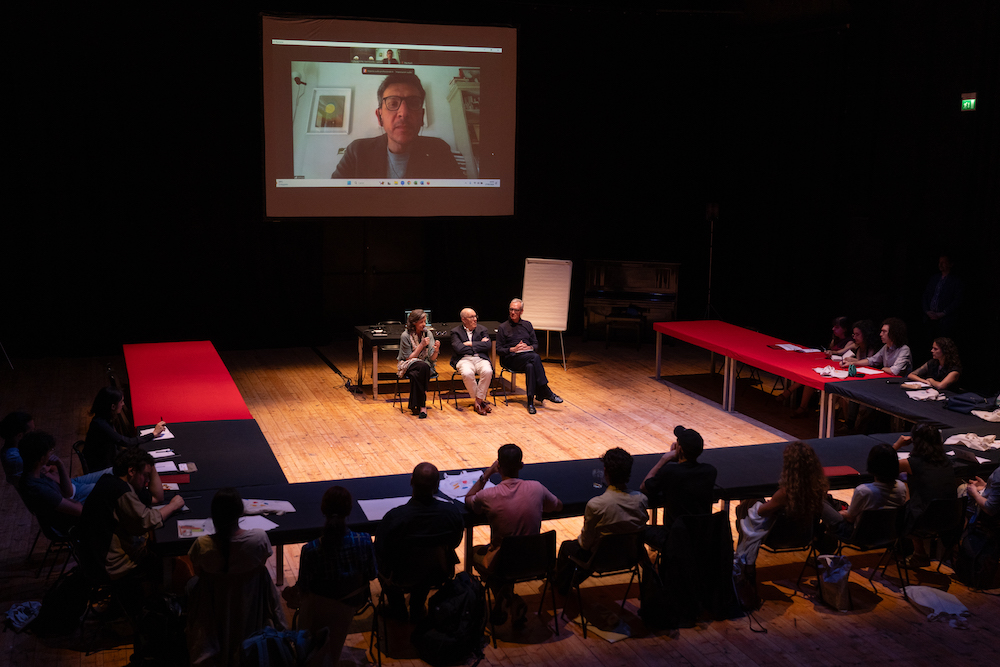
The teachers
Here is a list of the teachers confirmed to date. Further names will be updated during the coming weeks.
Florian Borchmeyer - Curator and director
Film and theater festival curator, playwright, director and literary scholar.
He studied Romance literatures in Berlin, Havana and Paris. In 2006 he received his doctorate in philosophy with a thesis on New World chronicles in the 16th century. Since 2001 he has worked as a literary critic for the Frankfurter Allgemeine Zeitung and has been a cultural journalist for German public television channels (ARD, ZDF, 3Sat, ARTE).
In 2006 he premiered the documentary “Habana – Arte nuevo de hacer ruinas” at the Locarno Film Festival and other international festivals, receiving several awards (Bavarian Film Award, Best Documentary at DOCSDF Mexico, among others). Between 2011 and 2019 he was head of dramaturgy at Berlin’s Schaubühne Theater and now curates the Schaubühne’s International New Drama Festival (FIND), the most important platform for international contemporary theater in the German capital.
Gabriela Carrizo - Director and choreographer
Director and choreographer, she founded the Peeping Tom Company with Franck Chartier in 2000. A characteristic element of their work is a hyperrealistic aesthetic combined with a concrete scene. Each creative process is a new step in the search for a harmonious interweaving of movement with what is theatrical and emotional, but also with text, sound and scene. Over the years, the company has developed a very strong relationship with theaters and audiences: the Peeping Toms’ performances attract a large and loyal audience of mostly young people, not only at home but also abroad.
Photo credits: Virginia Rota
Romeo Castellucci - Theatre director and set designer
Graduated in Painting and Scenography at the Academy of Fine Arts in Bologna, in 1981 together with Claudia Castellucci and Chiara Guidi he founded the Socìetas Raffaello Sanzio.
He is known all over the world for having created a theatre founded on the totality of the arts and aimed at an integral perception of opera. His theatre proposes a dramaturgy that overturns the primacy of literature, making his theatre a complex form of art; a theatre made of extraordinarily rich images expressed in an understandable language such as music, sculpture, painting or architecture.
In 2007, Romeo Castellucci was named “Artiste Associé” by the Direction of the Avignon Festival (2008 edition) together with the French actress Valérie Dréville. On this occasion he presented the trilogy inspired by Dante Alighieri’s Divina Commedia, Inferno, Purgatorio, Paradiso. In 2013 he was awarded the Golden Lion for Career by the Venice Biennale (Theatre Sector) with this motivation: “For his ability to create a new stage language in which theatre, music and the plastic arts are mixed. For creating worlds in which we reach the excellence of the representation of dream states, which is perhaps the most beautiful statement that can be made of the theatrical fact. For making a scenic representation of something impossible to represent as the nightmare”.
His work is still regularly invited and produced by the most prestigious prose theatres, opera houses and international festivals in over fifty countries covering all continents.
For the three years 2021-2024 he is resident artist as “Grand Invité” of Triennale Milano.
In the field of opera, in 2023-2024 he will work on the tetralogy of “Der Ring des Nibelungen” by Richard Wagner for La Monnaie in Brussels and the Liceu Theatre in Barcelona.
Adriana Cavarero - Philosopher and historian of philosophy
She has taught Political Philosophy at the University of Verona, where she is currently honorary professor and chair of the scientific committee of the Hannah Arendt Center for Political Studies. She has been a visiting professor at New York University and the University of California Berkeley. Castelvecchi is republishing her works, including In Multiple Voices. Philosophy of Vocal Expression (2021), You Who Look at Me, You Who Tell Me. Philosophy of Narrative (2022), Horrorism. AKA of violence on the helpless (2022), Despite Plato. Female figures in ancient philosophy (2023). Her new book is Women Nursing Wolf Cubs. Icons of the hypermaternal.
Photo © Dede Leoncedis
Fabio Cherstich - Theater and opera director
Theater and opera director and set designer.
In his work, care for the image and passion for visual languages converge. He has worked in numerous theaters in Italy and abroad, including the Marinsky Theater in St. Petersburg, Teatro Massimo in Palermo, Teatro dell’Opera in Rome, Opera d’Avignon, Opera de Marseille, Theatre Maillon de Strasburg, Teatro Argentina in Rome, I Teatri Reggio Emilia, and is associate artist of Teatro Franco Parenti in Milan.
His shows have been invited to prestigious international festivals, including Festival d’Avignon, Naples Festival, Festival Premiere Strasburg, Stuck Contemporary Art Center – Leuven and Festival dei Due Mondi di Spoleto. He is the creator and director of the opera on the road project “Operacamion” described by the New York Times as “a unique project capable of taking opera back to its roots.” As director of perfromative events for fashion and design he has collaborated with Cassina, Gufram, Memphis Milano, Fay, Hermès and Off-WHITE.
He collaborates as an editor with international magazines, including Apartamento, Dust, Cap 74024, L’Uomo Vogue, Numerò and Alla Carta. He teaches theater directing aesthetics at the Paolo Grassi School of Dramatic Art in Milan and at the free university of communication IULM in Milan.
Alfonso Cipolla - Professor of Theory and Technique of Scenic Interpretation
Lecturer of Theory and Technique of Scenic Interpretation at the Higher Institute of Musical Studies “Conservatorio G. Cantelli” in Novara, he taught Animation Theater at the Faculty of Letters and Philosophy of the University of Turin for ten years. In 2001 he founded with Giovanni Moretti the Institute for Puppetry and Popular Theater, of which he is director, curating numerous projects, exhibitions and publications. From 2020 he is President of the National Center UNIMA (Union Internationale de la Marionnette).
As a playwright, he is the author of some 50 plays and opera librettos and his works have been produced by Teatro Regio di Torino, Teatro Stabile di Torino, “Il Vittoriale degli Italiani” Foundation, Ravenna Festival, Mittelfest, among others.
Francesco Filidei - Composer
A composer, he graduated from the Luigi Cherubini Conservatory in Florence and the Conservatoire National Supérieur de Musique et de Danse in Paris. As an organist and composer, he has been invited to participate in major contemporary music festivals around the world. His works have been performed by numerous world-class orchestras, including WDR, SWR, RSO Wien, RAI, Tokyo Philharmonic, BRSO and the Philharmonic Orchestras of Monte Carlo, Nice, Picardie, Helsinki, Vilnius and Warsaw, to name a few.
He has received numerous awards, including the 2006 Salzburg Music Förderpreisträger, the 2007 Prix Takefu, the 2009 Siemens Förderpreis, the 2011 International Rostrum of Composers UNESCO Picasso-Miro Medal, and the 2015 Abbiati Prize, Les Grands Prix Internationaux du Disque of 2016 for his album Forse, an award from the Simone and Cino Del Duca Foundation in 2018, and the SWR Orchesterpreis in 2021 during the 100th Donaueschinger Musiktage for his Oratorio The red death from a novel by Edgar Allan Poe. He has taught composition in the Voix Nouvelles program of the Royaumont Foundation, at the University of Iowa, Takefu (Tokyo), at the International Academy of Tchaikovsky City (Russia), at the Darmstädter Ferienkurse (Germany), and at numerous institutions and universities around the world (Ircam, Cnsmdp, Esmuc, Musikene, Strasbourg and Moscow Conservatories, the University of Berlin UDK, the universities of Hannover, Stuttgart, Graz, San Diego, Tokyo, Hong Kong among many others).
In 2016 he was appointed Chevalier des Arts et des Lettres by the French Ministry of Culture.
In 2018 Filidei joined Fondazione I Teatri in Reggio Emilia, Italy, as music consultant and Villa Medici in Rome as artistic director of the contemporary music festival Controtempo. In 2022, he is appointed composer-in-residence at the Genoa Opera House (Teatro Carlo Felice) for three years. Filidei’s first opera, Giordano Bruno, had its world premiere in 2015 in Porto, Portugal, and has since been performed in theaters throughout Europe. His latest opera, L’inondation, to a libretto by Joel Pommerat, was composed for the 2019 season of the Opéra Comique in Paris, Rennes, and Nantes and was revived in Paris and Luxembourg in 2023. His new opera, The Name of the Rose, is commissioned by La Scala and the Opéra de Paris, in co-production with Genoa’s Teatro Carlo Felice. The first performance will be in Milan in 2025, followed by the premiere of the French version in Paris.
Filidei’s operas have been published by Casa Ricordi since 2018. Previous works are published by RaiCom.
Heiner Goebbels - composer
A composer, conductor and professor at Justus-Liebig University in Gießen, he is among the most significant exponents of musical theater. A multifaceted figure in innovative performance, his output combines musical experience with theatrical performance. Since the 1990s he has devoted himself to commissioned works for Ensemble Modern, L’Ensemble Intercontemporain and the Junge Deutschen Philarmonie. He has composed and directed a number of stage concerts, including The Man in the Elevator (1987), The Liberation of Prometheus (1991), The Tears of the Fatherland (1986), Repetition (1995), and Black on White (1996). Plays include Max Black (1998) and Eraritjaritjaka (2004).
Photo © Harald-Hoffmann
Francesco Izzo - Musicologist, pianist, coach
Musicologist, pianist and coach, he is a full professor at the University of Southampton, UK, where he teaches courses in music history and theory and supervises dissertations and PhDs in music history and theory, nineteenth-century performance practices and text criticism. As Scientific Director of the Verdi Festival since 2017, he has collaborated on programming and assisted the work of Roberto Abbado, Daniele Callegari, Michele Mariotti, Francesco Pasqualetti, Hugo de Ana, Leo Muscato, Graham Vick, and many other Verdi performers.
Photo © Roberto Ricci
Pasquale Mari - Light Designer and director of photography
Pasquale Mari’s research dedicated to image takes place on the border, continuously crossed in both directions, between cinema and theatre. This has been the case since the founding, in Naples, of the theatrical and cinematographic companies Falso Movimento and Teatri Uniti together with directors Mario Martone, Antonio Neiwiller and Toni Servillo. In addition to being the work partner of almost all the prose directors of Mario Martone, Pasquale Mari has collaborated with authors and directors such as Carlo Cecchi, Andrea De Rosa, Valerio Binasco, Arturo Cirillo and Filippo Dini becoming a reference point for their work.
In the musical field he has worked with Avion Travel, Ivano Fossati and the Orchestra of Piazza Vittorio and signed the lights of many shows of the dance company Balletto Civile by Michela Lucenti. Among the most important film experiences we can mention: «Il verificatore» by Stefano Incerti (David di Donatello first works), «Il bagno turco» and «Le Fate Ignoranti» by Ferzan Ozpetek, «Teatro di Guerra» by Mario Martone (candidate for the David of Donatello), «L’uomo in più» by Paolo Sorrentino, «Renzo e Lucia» and «Lezioni di Volo» by Francesca Archibugi «Placido Rizzotto» by Pasquale Scimeca. Long-term collaboration with Marco Bellocchio for whom he has taken the photographs of «L’ora di religione», «Buongiorno, notte» and «Il regista di matrimoni». In recent years he has collaborated on the film debut of Luigi Lo Cascio, «La Città Ideale», and in 2017 to that of Marco Martinelli, «Vita agli arresti di Aung San Suu Kyi». Engaged in various training activities, Mari currently collaborates with the Academy of Dramatic Art “Silvio D’Amico”, where since 2016 has been established teaching Project Lights.
Piero Martin - Professor of physics
His work is devoted to the physics of plasmas and in particular to its energy applications, through magnetic fusion. He carries out his research at the laboratories of the RFX Consortium in Padua, where he is scientific director of the RFX experiment. He is currently responsible for the European ‘Topical Group’ on magnetohydrodynamic stability set up by EFDA, The EU’s fusion research programme is coordinated at European level in existing experimental facilities. He is also the coordinator of the Implementation Agreement on RFP of the International Energy Agency (IEA), and a member of the European Physical Society and the American Physical Society. From 2005 to 2007 he was the head of the Task Force dedicated to the study of ‘MHD instabilities and their active control’ at the Institute für Plasmaphysik (IPP) The Commission has been asked to present a report on the work of the Max-Planck Gesellschaft in Garching bei München, which is responsible for coordinating a large scientific programme.
Author of over 100 publications in international journals and international congress proceedings, was invited to give presentations at the most important conferences in the field of plasma and fusion physics, such as those of the European Physical Society, the American Physical Society, International Atomic Energy Agency (IAEA), the Italian society of physics. He is a member of the European Physical Society and the American Physical Society.
Clara E. Mattei - Associate professor
Associate professor in the Department of Economics at the New School of Social Research, New York.
He works on the History of Capitalism, exploring the critical relationship between economic ideas and technocratic policies. She recently published The Capital Order: How Economists Invented Austerity and Paved the Way to Fascism (2022), praised by the Financial Times as one of the ten best economics publications of 2022. The text has been translated into more than 10 languages and won the American Historical Association’s Herbert Adams Baxter Prize 2023. Her current research project critically reviews the Golden Age of Capitalism (1945-1975) and its Keynesianism through the lens of austerity capitalism. Her writings have appeared in The Guardian, Jacobin, The Nation and Il Fatto Quotidiano, to which she is a regular contributor.
Andrea Molino - Composer and conductor
Composer and conductor studied in Turin, Milan, Venice, Paris and Freiburg.
Artistic director of Fabrica Musica from 2000 to 2006, he produced CREDO at Staatstheater Karlsruhe, Stazione Termini in Rome and the Queensland Music Festival in Brisbane, among others. WINNERS premiered at the Brisbane Festival and was then presented in Paris at the Centre Pompidou.
In 2009 at the Basilica dei Frari in Venice he conducted Of Flowers And Flames with the Orchestra della Fenice; in 2012 he presented Three Mile Island at the ZKM in Karlsruhe. The opera – there is no why here – was staged in 2014 at the Teatro Comunale in Bologna and in 2015 at deSingel in Antwerp. In 2021, The Garden of Forking Paths, the first public use of the SWARMS platform, developed with the RAI Research Center in Turin, was staged at Palazzo Madama in Turin; the installation The Sense of Place – Montepulciano accompanied the 2022 edition of Cantiere Internazionale d’Arte di Montepulciano. The premiere of La vérité, pas toute, for 32 voices, 8 percussion, electronics and live video took place in July 2023 at the Chigiana International Festival in Siena.
Marcos Morau - Director and choreographer
Revelation of recent years, he is artistic director of the company La Veronal in Barcelona and works using all the arts in a continuous search between space, story, body and memory.
He graduated in Choreography at the Institute of Theatre of Barcelona; He studied at the Conservatorio Superior de Danza in Valencia and at the Movement Research in New York, before obtaining a Master’s degree in Theory of Dramaturgy. He is performing his choreographic assistance project at the Nederlands Dans Theater II and in the IT company Dansa in Barcelona, under the direction of Catherine Allard.
In 2005 he created La Veronal, a collective formed by artists from the world of dance, cinema, photography and literature. The aim of his artistic team is to constantly seek new expressive media and cultural references, which create a narrative language to form global artistic spaces. La Veronal’s performances have been presented in some of the most important festivals and theatres in the world. He is an associate artist of Oriente Occidente.
Margherita Palli - Set designer and costume designer
Set and costume designer. Winner of numerous awards, including the UBU prize, the Abbiati prize, the Gassman prize, the ETI gli Olimpici del Teatro prize, the National Association of Theatre Critics prize, the Swiss Theatre Prize 2015, in 2007 she was included in the Guinness world records for the largest TV screen set design in the world. Since 1991, she has devoted herself to teaching as advisory leader of Scenography at the New Academy of Fine Arts in Milan, also teaching at the IUAV University of Venice and the Academy of Architecture of the University of Italian Switzerland in Mendrisio.
Lucia Ronchetti - Composer and Artistic Director
Born in Rome in 1963, Lucia Ronchetti studied Composition and Computer Music at the Conservatorio di Santa Cecilia, graduated in Philosophy from the University of Rome and received her doctorate in musicology from the École Pratique des Hautes Études en Sorbonne. She has been composer-in-residence at: Wissenschaftskolleg zu Berlin; Yaddo, New York; Berliner Künstlerprogramm des DAAD, Berlin; Fulbright scholar program, Columbia U., New York; Experimentalstudio des SWR, Freiburg; Akademie Schloss Solitude, Stuttgart; Cité internationale des arts, Paris. In 2024 his new opera Der Doppelgänger premiered at the SWR Schwetzingen Festspiele, in co-production with Luzerner Theater, directed by David Hermann, and his new chamber opera Searching for Zenobia premiered at the Munich Biennale in co-production with Staatstheater Braunschweig, directed by Isabel Ostermann. His musical theater projects have recently been produced by: Deutsche Oper am Rhein (Das Fliegende Klassenzimmer, 2023); Kölner Philharmonie (Chronicles of lonelines, 2023); Staatsoper Hannover (Pinocchios Abenteuer, 2023); Nouvelle Philharmonie, Paris (Les paroles gelées, 2022); Staatsoper Unter der Linden, Berlin (Pinocchios Abenteuer, 2022); Oper Frankfurt (Inferno, 2021). From 2021 to 2024, she was appointed artistic director of the Venice Music Biennale.
Photo © Andrea Avezzù courtesy of La Biennale di Venezia
Volker Schlöndorff - Film director
German film director, one of the leading names of the Junger Deutscher Film and one of the most significant directors of the renewal of German filmmaking, linked to civic engagement and a realistic style, for achievements, continuity and international recognition. Over the course of his career he won, among other things, the Fipresci prize for his 1966 debut feature Der junge Törless (The Disturbances of the Young Törless); the Palme d’Or ex aequo at the Cannes Film Festival in 1979, while his 1979 Die Blechtrommel (The Tin Drum) won the Oscar for best foreign film the following year.
Peter Stein - Theatre director
A German theater director, he is counted among the most important creators of German and European theater in the second half of the twentieth century, particularly in the great creative rush of the 1970s, for creating monumental projects and often in unusual spaces. Many significant works from that period, including Aeschylus’ Oresteia (1980), remounted in Russian in Moscow in 1994. The latter is the masterpiece in which the director abolishes the stage, replaced by the palace wall, placing the chorus in the midst of the spectators seated on steps.
In his “encounter” with Anton Chekhov, Stein reveals an unexplored comedy in the Russian author’s tragedy.
He has been the recipient of numerous international awards, including the French honor of Commandeur de l’Ordre des Arts et Lettres and Chevalier de la Légion D’Honneur. In 2011, he won the Europe Theatre Prize.
Ettore Tripodi - Artist and set designer
Born in Milan on 23 September 1985, he studied scenography at the Accademia di Belle Arti di Brera in Milan. He began to exhibit his works in several collective exhibitions organized by the Cannaviello Art Studio, where he also made his first solo exhibition in 2010. Several exhibitions in public and private spaces followed: at the State Institute of Culture in Sophia, the MAC in Lissone, the International Painting Exhibition in Hang Zhou, The Mucem of Marseille, the Italian Institute of Culture of Marseilles.
He collaborated with Ilaria Turba on Le désir de regarder loin, a participatory project produced by the Zef, the national theatre of Marseille, The audience in the north of the city was involved. The project was selected for Manifesta 13 and received support from the Italian Council. The work was subsequently exhibited at the Mucem in Marseille and at the Italian Institute of Culture in Marseille in 2021.
In 2021 the first collaboration with OPR Gallery, where, on the occasion of the first
The edition of the Milan Drawing Week, curated by Irina Zucca Alessandrelli, presented Notturni, a series of 23 drawings on paper in dialogue with a work by Giorgio de Chirico from the Ramo Collection.
He also collaborates as an illustrator with various magazines and newspapers including the cultural supplement «Domenica» of «Il Sole 24 Ore».
He is one of the founders of MammaFotogramma Studio, a group of artists working in applied arts (stop motion video, traditional animation, live action, multimedia installations, interaction design for events and exhibition spaces, design and architecture). Among the most representative works of the studio are the interactive installation Cassina 9.0 at the Fondazione Feltrinelli in 2017, the interactive table presented in the Vatican City Pavilion during Expo 2015 and Dollar Street, in 2019, at the Triennale of Milan.
Raffaele Alberto Ventura - Essayist
Essayist. After studies in philosophy and cultural activities management, he moved to Paris, where he worked for a decade dealing with marketing and digital marketing for the Gallimard group.
In 2017 he published with Minimum Fax the essay Theory of the Disadvantaged Class (from which a play was adapted); in 2019 he published La guerra di tutti. Populism, Terror, and the Crisis of Liberal Society (Minimum Fax); in 2020 the book Radical Choc. Rise and Fall of the Competent (Einaudi); in 2022 he participates in UTET’s anthology Can’t You Say Anything Anymore? on the topic of cancel culture; and in 2023 he publishes for Einaudi the essay The Rule of the Game. Communicating without doing harm. Among the topics covered in his books and speeches are the history of ideas (philosophy) and cultural history (cinema, comics, pop), marketing and sociology (cultural construction of needs), generational issue (millennials), civilizational crisis (economics, populism, discomfort, ecology), sociology of organizations (dysfunctions, distortions, irrationality, etc.), philosophy of risk and security, and contemporary languages.
Over the years he has collaborated with various newspapers; today he writes regularly in the daily newspaper Domani and the French magazine Esprit.
